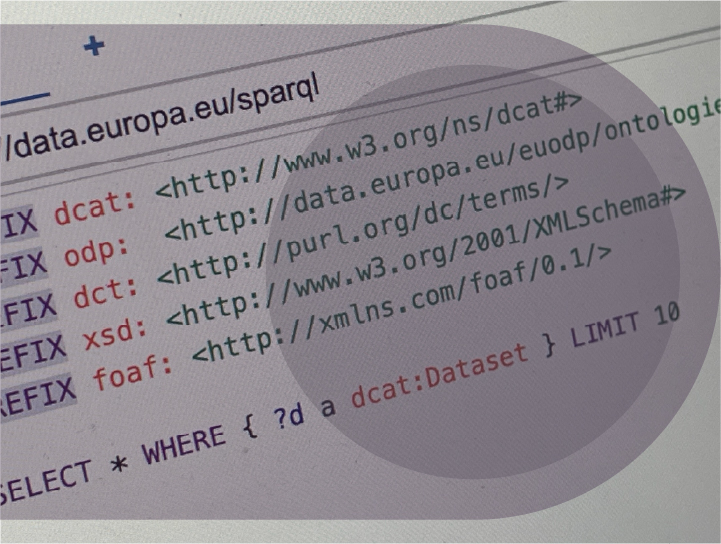591 resultados encontrados
Skip results of view Noticias

In an increasingly interconnected world, open data can be seen as a powerful tool to shape and strengthen international trade agreements. The European Union (EU) has integrated open data into several aspects of its Free Trade Agreements (FTAs) . On its trade page for non-EU markets , the EU uses a transparency mechanism displaying information on doing business in a non-EU country, like Costa Rica . When available, the site also shows statistics on import and export data from an EU perspective, promoting economic growth and ensuring European businesses can stay competitive. Several EU FTAs mark

Estonia’s open data portal, avaandmed.eesti , is a comprehensive portal designed to provide unrestricted access to public sector data. Their initiative aims to enhance transparency , foster innovation , and support both commercial and non-commercial use of data. The portal offers a user- friendly interface where individuals and organisations can easily search, access, and utilise a wide range of datasets. The portal is structured to facilitate easy navigation and data retrieval of the 1900 datasets available . Users can browse datasets by categories such as environment , economy , and health

Recently, we published our study ‘ High-value datasets: Cross-country findability and comparability of metada ’, which highlights the critical need for improved findability and metadata accessibility of high-value datasets (HVDs) across European Union Member States. Conducted between April and May 2024, before the Commission Implementing Regulation in force since June 2024, the study evaluates the availability and usability of 24 datasets from Denmark, Estonia, Latvia, and Finland. It focuses on six thematic categories: geospatial, earth observation and environment, meteorological, statistics

Our data.europa portal offers a powerful tool for accessing and querying its vast repository of datasets: the SPARQL search . SPARQL, which stands for SPARQL Protocol and RDF Query Language, is a semantic query language designed for databases. It allows users to retrieve data stored in a Resource Description Framework ( RDF ) format more easily, which is possible with our datasets as all metadata is stored as RDF triples. The SPARQL tool on data.europa.eu provides a machine-readable interface that enables users to perform complex queries on the metadata of datasets available on our portal

The integration of open data into artificial intelligence (AI) systems is revolutionising various sectors across Europe. When it comes to open data, a symbiotic relationship is present. AI continues to benefit from access to open data, specifically high-quality open data, to enhance the accuracy and efficiency of AI models. At the same time, AI can analyse large volumes of open data and identify trends and patterns. Open data serves as a valuable resource for training AI algorithms, allowing them to process and analyse vast amounts of information. For instance, AI systems can leverage open

On 20 October 2024, the European Union celebrates the 9th European Statistics Day under the motto ‘Official Statistics, a window for understanding society’. This day highlights the role of official statistics in providing deep and reliable insights into society, which are essential for making informed decisions about the present and future. As we navigate an increasingly complex world, trustworthy, high-quality statistics have become even more crucial. Official statistics are produced with a commitment to independence, integrity, and accountability, adhering to international standards and best
On 25 October, from 10:00 to 11:30 CEST, the data.europa academy will host the workshop ‘ How to use open data for your research ’ where participants can learn how to apply open data independently. Although the workshop is tailored for academics and students, it is suitable for all open data enthusiasts who are interested in using open data. During the workshop, experts from the University of the Aegean in Greece will discuss both how to use open data in research and how researching open data itself can drive innovation and support decision-making. Additionally, experts from the Open Data

The National Interoperability Framework Observatory (NIFO) is an initiative by the European Commission aimed at enhancing digital cooperation across Europe. By providing a comprehensive overview of interoperability activities, NIFO supports the alignment of national frameworks under the Interoperable Europe initiative, previously the European Interoperability Framework. This alignment fosters seamless digital interactions and cooperation among public administrations in EU Member States. NIFO’s role extends beyond an observational one. It engages with 35 European countries to ensure that

The BDTI Skills Studio is a place to learn essential data skills for free. Launched in September, it will continue with a series of engaging workshops throughout October and November. Workshops are organised to equip public administrations and proactive citizens with essential data analytics skills. Moreover, participants can uncover valuable insights, enhance public services by understanding how to utilise open data, and support a better future for citizens at the local, regional, and national level. A successful series of three workshops in September have taken place already, which you can

As the global push for open data accelerates, the intersection between transparency and cybersecurity has become a critical focal point. With October being the Cybersecurity Awareness Month , we discover what role open data plays to ensure a safe digital environment. Open data initiatives offer opportunities for innovation and economic growth, but they also raise concerns about the security of sensitive information. In a digital-first world, ensuring both the free flow of non-personal data and the safeguarding of critical systems is essential for building trust. Governments and organisations
